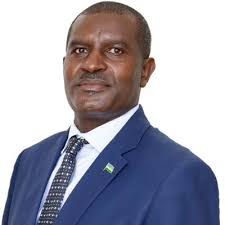By Emmanuel Bugingo
As we observe Rwanda’s Liberation Day, also referred to as Kwibohora in Kinyarwanda, we reflect on three decades of transformation—from a nation torn apart by genocide to a beacon of resilience, innovation, and progress. This year’s Liberation Day theme is: “Kwibohora- Rwanda’s Journey Continues.”
Thirty-one years ago, Rwanda was engulfed in darkness. The 1994 Genocide against the Tutsi claimed over a million lives in just a 100 days. Families were shattered, institutions collapsed, and the very fabric of our nation was torn apart. But from the ashes of tragedy, a new Rwanda was born. On July 4, 1994, the Rwandan Patriotic Front (RPF) liberated Rwanda, ending the
genocide and setting Rwanda on a path of renewal.
We therefore pay tribute to the brave men and women of the RPF, whose sacrifice restored dignity to our nation.We honour the fallen soldiers who gave their lives for Rwanda’s freedom; the survivors, whose resilience inspires us daily and the post-genocide leadership of Rwanda who collectively have steered Rwanda from devastation to prosperity.
Liberation Day is not just a historical milestone—it is a living testament to the power of unity and purpose. In 1994, Rwanda’s Gross Domestic Product had collapsed, infrastructure was destroyed, and trust among citizens was broken.Yet, through home-grown solutions, we as a nation pursued justice and reconciliation; gender equality; universal healthcare, economic renaissance among several other transformative initiatives.
From a war-torn economy to an African success story, Rwanda has achieved eight percent average GDP growth for the past two decades.In the year 2000, the average annual income per Rwandan was US$268, which rose to US$1,029 by 2024. The Government of Rwanda attributes this poverty reduction to a range of social protection programmes, such as Girinka (One Cow per Poor Family Programme), Vision 2020 Umurenge Programme, direct support to vulnerable households and health insurance coverage
for all citizenry.
Whilst improving the ease of doing business in the country, Rwanda has shifted from an agrarian economy to a knowledge-based economy and positioned itself on the continent as a tech and business tourism hub, solidifying our country’s ambition to become a global leader in innovation and sustainability.
In 2023 Rwanda’s foreign direct investment surged by an impressive 44.3 percent, reaching US$716 million.This growth, fueled by foreign investments in Rwandan businesses and assets, reflects Rwanda’s increasing appeal to international investors and highlights the Rwandan Government’s efforts to improve its investment landscape.
Other key economic reforms in Rwanda include:
The Made in Rwanda Policy: Which encourages local manufacturing.
The Kigali International Financial Centre (KIFC): Which aims to make Rwanda a financial hubfor Africa.
Special Economic Zones: Created to attract tech and manufacturing firms.
Rwanda and Zambia, though geographically distant, have historically maintained cordial diplomatic relations over the years.
The cooperation between both countries extends beyond regional affiliations. In the past decade Rwanda and Zambia have strengthened ties in trade, security, agriculture, travel and diplomacy,fostering mutual growth and development.
High-level visits by the Presidents of both countries have reinforced bilateral relations.Both Rwanda and Zambia collaborate in multilateral forums such as: the African Union (AU):advocating for peace and economic integration; the Common Market for Eastern and Southern Africa (COMESA): promoting trade and investment as well as the International Conference on
the Great Lakes Region (ICGLR): which addresses regional security challenges.
RwandAir, Rwanda’s national carrier, operates daily flights to Lusaka, boosting tourism and business travel for both Rwanda and Zambia.
As we look forward to deeper cooperation between Rwanda and Zambia, I would like to take this opportunity to thank the Government of Zambia for being an all-weather friend to Rwanda.Rwanda’s Liberation was not just a moment—it is a continuous mission. Hence Rwanda’s Vision 2050 which outlines our country’s long-term development goals aims to: attain a high-
income economy; a knowledge-based society and achieve climate resilience.
So as Rwanda continues upholding the legacy of liberation we call upon all Rwandans both home and abroad to be ambassadors of our progress. We also invite international partners and friends of Rwanda to join us in achieving mutual sustainable development for our respective countries. And to the Rwandan youth I wish to encourage you to continue to innovate, lead, and protect our gains as a nation.
As we celebrate 31 years of liberation today, we as Rwandans ought to remember
Our past, to honour the fallen.
Our present, to build a better Rwanda and
Our future, to inspire generations.
Rwanda’s story proves that no obstacle is too great when a people are united. Let us march
forward—together.
The author is the Rwanda High Commissioner to Zambia



On paper as per IMF figures ,Zambia is still US $400 richer per person than Rwanda .That is despite Zambia’s stagnant decade and Rwanda’s stellar performance over two decades.
Rwanda’s success is explainable .
Success from a very low base is always easy ,its when you get to technologically complex economics of manufacturing cars ,semiconductors, pharma or engineering that stagnation sets in.
that’s great news to hear. Can i come to contribute to science. I am from Zambia
Comments are closed.